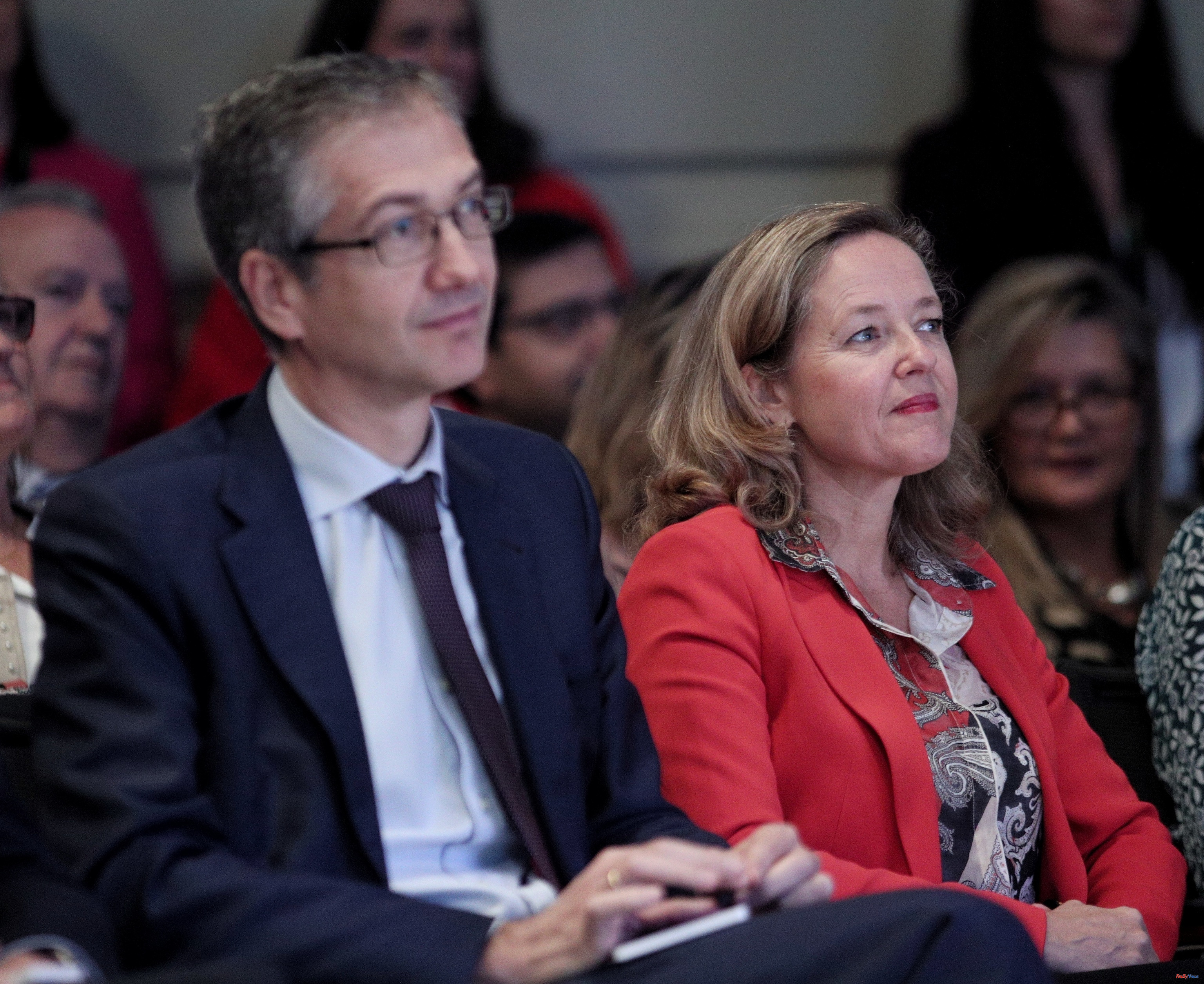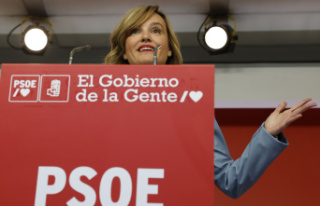Getting to pocket about 200 euros, even without foundation, can be much easier and more massive than trying to get the new public check for the shopping basket thanks to the first additional provision of a new law that has sparked another clash between the Government and the banking.
This is the norm that regulates the so-called Independent Administrative Authority for the Defense of Financial Clients for the extrajudicial resolution of conflicts between financial entities and their clients. In this bill presented by Nadia Calviño and currently processed in Las Cortes, the bank is obliged to pay 250 euros to the new state agency for each claim made by a client, whether he is right or not.
With this rate, which is charged to the bank for the mere processing of the complaint, even if it is for a lower amount, Calviño expects to finance the operation of this newly created administrative entity each year, which will have 250 public employees.
"It is a scandal, if any client presents a claim, even if the agency ultimately denies it, we still have to pay 250 euros to this new beach bar that they set up to process it," criticizes a very senior executive from this newspaper in conversation with this newspaper. one of the main banks in the country. "It can be worthwhile for us to pay, for example, 200 euros to the client so that they do not file the claim and thus, at least, we save 50 euros for each case," he says of this unusual provision that can serve as a precedent for other sectors such as the airlines or tourism. "Even paying 245 is still more profitable to continue the process," adds another source in the sector.
The measure undoubtedly favors the unfairly treated bank client, but it is such an easy highway to successfully claim small amounts that any well-organized and well-advised smart citizen can even get hundreds of euros protesting in several banks.
The governor of the Bank of Spain, Pablo Hernández de Cos, warned this Thursday before the Economic Affairs Committee of Parliament that half of the current complaints are less than 250 euros, so the secular Hispanic picaresque can be unleashed. «This system could cause any dispute for an amount less than the amount of the fee to be accepted by the entity regardless of whether or not its behavior has been in accordance with the regulations and good practices, since continuing the procedure before the Authority it would always be more expensive. (...) And it could generate an increase in conflicts between clients and entities », he stated.
De Cos added that the Council of State also questions the system set up by the Ministry.
On the other hand, Calviño's lieutenant, the Secretary of State for the Economy, Gonzalo García Andrés, defends the tax, because he believes that it will not be as tax-rich. He calculates that the claims will double, but that, of the millions of Spaniards with a bank account, only about 100,000 will file a claim and that this will mean an annual income for the state agency of 23 million euros.
It may fall short, because if it is so easy to extract 200 euros for alleged unfair commissions, cards, mortgages or other types of claims, why not try to get a little money from the bank in exchange for avoiding having to pay more to the new entity? According to the law, any type of claim will be accepted except those that are "manifestly unfounded", but the new agency will have the incentive to admit them all, because for each one it pockets 250 euros.
In this new conflict between the Government and the sector, the banking employers are revolting. The general secretary of the Spanish Banking Association, Javier Rodríguez Pellitero, even points to a risk of unconstitutionality by being made to cover "the body's expense needs without any connection to the amount of the claims."
In this new conflict between the Government and the sector, the banking employers are revolting. The general secretary of the Spanish Banking Association, Javier Rodríguez Pellitero, even points to a risk of unconstitutionality by being made to cover "the body's expense needs without any connection to the amount of the claims." The employers' association that represents Santander, BBVA, Sabadell and others trusts that the amendment process will help, but the Secretary of State is firm. "We have already given it many turns." holds he. And he only concedes that, if he sees that they go too far with the rate, he will cut it in future state budgets. But in the meantime, financing is secured for the bank customer ombudsman without its creation, by the way, being fully justified, according to existing supervisors, because it could have been enough to toughen current protection regulations. In addition to De Cos's doubts, the president of the CNVM, Rodrigo Buenaventura, sees it as unnecessary, at least in the stock market, because "the situation of claims from financial clients of securities or funds in Spain in the last five years has not it is not problematic at all. There is no problem to solve, nor are we in a worrying situation.
It is impressive how something as praiseworthy as better defending the bank client is carried out in such a debatable way and at the risk of spectacle.
55 months after being appointed president of Renfe, Isaías Táboas, has been forced to resign after the scandal of the trains that do not fit through the tunnels. Logical because it is inexplicable how this public company has taken at least a year and a half to implement the redesign solution that was known from the outset. But he has shown strength, also achieving the dismissal of the Secretary of State for Transport, Isabel Pardo de Vera, who was the one who warned him from Adif in March 2021 of the train problem. His party, the PSC of Catalan socialism, also exhibits power, because it manages to keep Renfe in the hands of another of his own, Raül Blanco. Moncloa allowed, in a clear lack of control, Reyes Maroto to fire him and demote him in December, because he now rehabilitates him. Meanwhile, the PSC already adds several key state companies.
After leading the mission in Spain, the president of the European Parliament's Committee on Budgetary Control, Monika Holheimer, is now focusing on the resolutions on the European Commission's management of European funds in 2021 that will put pressure on Brussels and the Government, because it takes a critical view of how they are being executed. She also wants to include surveillance on Spain for lowering the crime of embezzlement in the middle of a festival of funds. The German declares herself surprised at the interpretation that some Spanish media gave to her statement at the press conference that she did not see "signs of fraud." She points out that she was missing, perhaps in the translation, "the other part of the sentence" and that is because there are no indications, but because she has no basis to say otherwise as there is no transparency or access to final beneficiaries.
The president of Telefónica, José María Álvarez Pallete, is also president of the GSMA, the world association of operators, and the Mobile World Congress begins with an appreciable first battle won by his lobby in the EU. The European Commission begins the process on whether Google, Meta (Facebook, Whatsapp...) and others should pay the operators for taking advantage of their network to reach millions of users. Only this initiative from Brussels feeds the stock market value of Telefónica and its sector, but its enemies are powerful and the story counts. CCIA, the association of these giants, already launches that the client will pay if the telephone lobby succeeds: «Europeans already pay telecommunications operators for Internet access, they should not have to pay them again for streaming services and in the more expensive cloud”.
According to the criteria of The Trust Project












